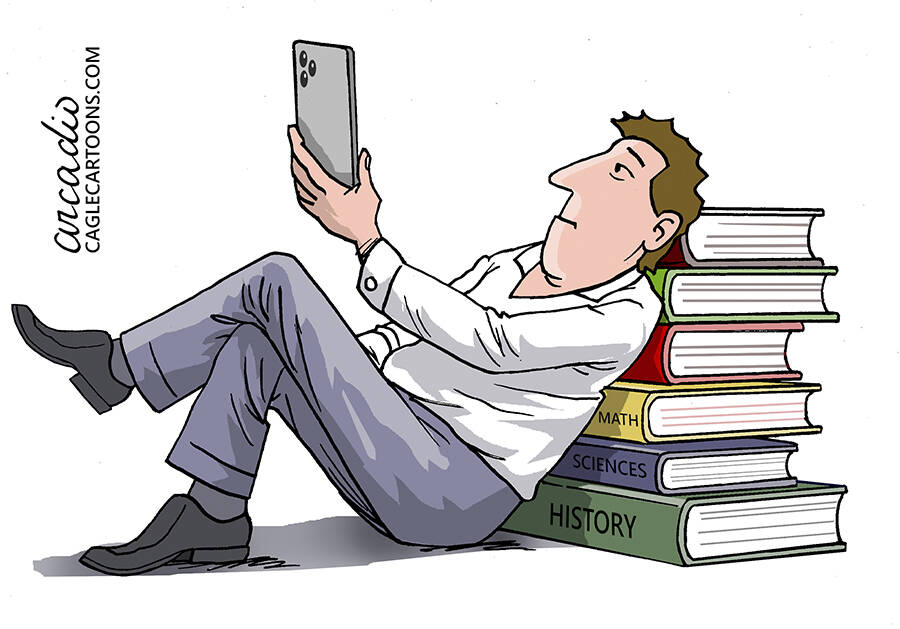When I read about the “silent book club” trend, it filled me with instant calm and hope.
As it goes, in 2012, two friends in San Francisco came up with the idea for a non-formal social event in which book lovers can gather at a coffee house or pub, then read together in silence for an hour or so, after which they may discuss any thoughts about what they are reading and socialize.
There is something very special about being immersed in a great work of fiction or nonfiction that brings about a peacefulness and enrichment that few other activities can bring.
A deep dive into someone’s life story, economics, history, the cosmos or so many other curiosities in our incredibly rich world not only makes us calmer, but it improves our ability to think and concentrate and become wiser and more open to the thoughts of others.
Goodness knows we need more free-thinking in these highly agitated and partisan times.
Book reading has been in decline for a long time because it must compete with other forms of entertainment.
I remember seeing author Kurt Vonnegut, whose colorful writings are still enjoyable, talking about this challenge to book reading with other now-deceased authors on a talk-show clip on YouTube that must be 40 years old.
He said that until radio came along, books were the only form of entertainment for most people, particularly in the winters when there was nothing else to do in the evening but read.
Radio and TV offered alternatives to reading. And now social media, streaming TV, podcasts and so much more have really put a dent into our book reading.
According to a 2022 Gallup survey, the average American reads about 12 books a year, two or three books fewer than 20 years prior.
However, the steepest decline, according to Gallup, is among people who had been the most avid readers — college graduates but also women and older Americans.
“College graduates,” Gallup found, “read an average of about six fewer books in 2021 than they did between 2002 and 2016, 14.6 versus 21.1.”
To me, this is concerning because book reading improves your ability to concentrate and focus — skills that especially need to be nurtured at a time when attention spans are also in steep decline, as millions jump from one short TikTok or Instagram video to another.
Why is this concerning?
Because concentration and intelligence go hand-in-hand.
The ability to evaluate ideas and delineate between ideas that are silly and false and ideas that are effective and true is important in any democracy.
If we lose the ability to see through bunk, we are at risk of electing officials who put their personal gain before the good of the republic.
Concentration and clear thinking are also important to engaging in thoughtful conversation with others who hold different ideas than our own — and books can nurture our ability to get back to more thoughtful discussions.
Gathering together to read, talk and socialize is as good an idea as I’ve heard in a long time. I am hungry for such camaraderie.
Besides, I’ve got a stack of classic books I’ve been meaning to get to that include Mark Twain, O’Henry, James Michener and Mary Shelley.
Did you know Shelley wrote her famous Frankenstein work when she was only 18?
Now there’s an anecdote to share at a silent book club gathering.
Copyright 2024 Tom Purcell, distributed exclusively by Cagle Cartoons newspaper syndicate. Purcell is a Pittsburgh Tribune-Review humor columnist. Email him at Tom@TomPurcell.com.



